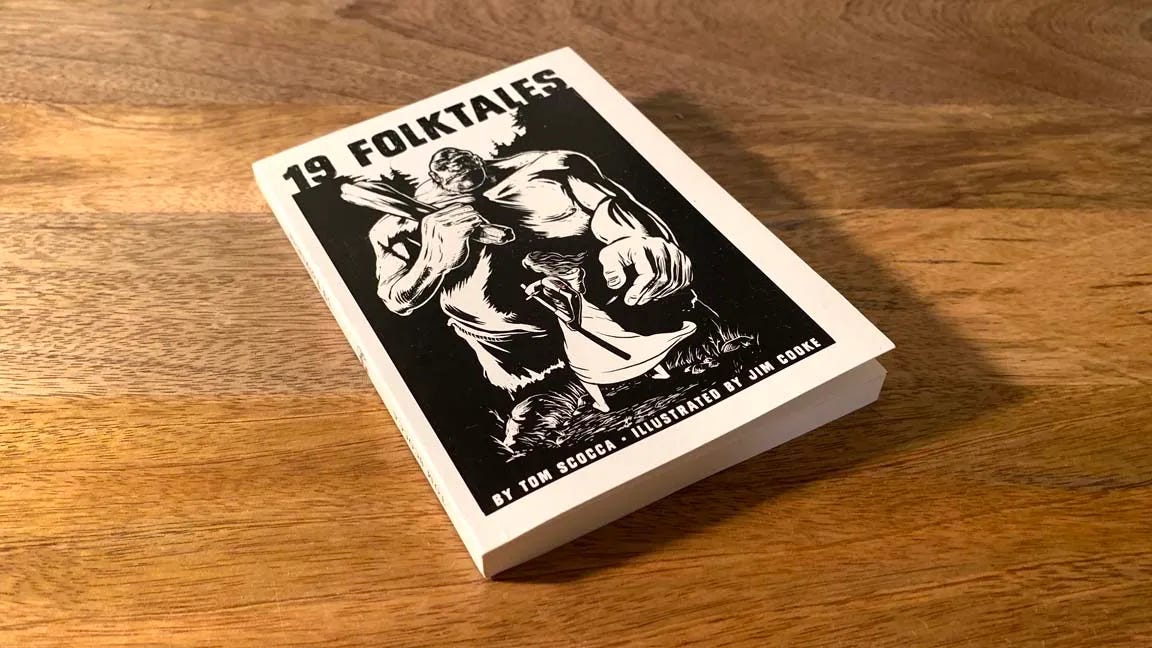Who Elected the Times Editorial Board?
Indignity Vol. 4, No. 109

CRISIS MEETS OPPORTUNISM DEP'T.
Panicked Pundits Give Up on Democracy
“THERE IS HONOR in recognizing the hard demands of the moment,” New Yorker editor David Remnick wrote on his magazine's website on Saturday. This was his conclusion to a stentorian blog post about President Joe Biden's terrible debate performance this past Thursday—"struggling terribly with memory, syntax, nerves, and fragility, his visage slack with the dawning sense that his mind was letting him down and that, as a result, he was letting the country down"—and about the political crisis that has followed.
That crisis has been particularly critical among powerful journalists. Immediately after the debate, New York Times columnists began piling on Biden, demanding he step aside as the Democratic presidential nominee. By Friday the Times editorial board had consolidated the panic into the official position of the newspaper, under the headline "To Serve His Country, President Biden Should Leave the Race."
The tone was serious, and the thinking was vacuous. Leave the race how? The editorial board wrote:
The clearest path for Democrats to defeat a candidate defined by his lies is to deal truthfully with the American public: acknowledge that Mr. Biden can’t continue his race, and create a process to select someone more capable to stand in his place to defeat Mr. Trump in November.
The clearest path is...to "create a process." What process? Involving whom? How would it work? How would it fit into the existing processes and laws that control how a major party puts its candidate on the ballot in all 50 states?
Remnick was equally shifty. "To step aside and unleash the admittedly complicated process of locating and nominating a more robust and promising ticket seems the more rational course and would be an act of patriotism," he wrote. The process of replacing a presumptive presidential nominee in June isn't "admittedly complicated"—it's neither complicated nor simple, because what needs to be admitted is that such a process doesn't exist. At all! Whatever the word for that may be, it's not "rational."
Joe Biden bombed the debate. He looked feeble and incapable. Apparently viewers who hadn't already made up their minds were less bothered by what they saw of Biden than they were by Trump's raving and transparent lying. But among people committed, correctly, to the belief that Donald Trump must not become president again, Biden's failure to offer a confident, reassuring alternative to Trump was terrifying. He really, really could lose, and there's no plausible way to tell voters who think he's too old for the job that he isn't too old.
But there's no plausible way to tell voters to go along with the journalists' scheme, such as it is, either. What the Times editorial board and Remnick and all the other pundits offered wasn't an answer to the problem. It was a frightened fantasy, a stampede away from logic, honesty, and democracy itself.
Part of it is that even in this desperate moment, when the country needs someone—anyone, whoever it may be—to stop Trump, the opinion-writers still cling to the belief that they ought to be able to choose a candidate who fits their personal preferences. Nobody was really satisfied with Biden even before the debate, so why not take this opportunity to replace him with someone who would be satisfactory to a liberal-to-centrist opinion journalist?
The Times' Nicholas Kristof set the tone immediately after the debate:
The Democratic Party has some prominent figures who I think would be in a good position to defeat Trump in November, among them Gov. Gretchen Whitmer of Michigan, Senator Sherrod Brown of Ohio and Gina Raimondo, the secretary of commerce. And there are many others.
Remnick offered readers the same sort of hypothetical bounty:
To stay in the race, at this post-debate point, would also suggest that it is impossible to imagine a more vital ticket. In fact, Gretchen Whitmer, Raphael Warnock, Josh Shapiro, and Wes Moore are just a few of the office-holders in the Party who could energize Democrats and independents, inspire more younger voters, and beat Trump.
In the name of political realism, they were proposing that the Democrats should consider surrendering a purple- or even red-state Senate seat, breaking their majority in the chamber. All to get someone for whom 49 states' worth of people have never cast a single vote, and whom no one at all (maybe a few write-in primary votes aside) has chosen for president in 2024.
The reason for taking these extraordinary measures would be that Donald Trump is a threat to the fundamentals of American democracy. Whereas naming a candidate with no previous support whatsoever—to run for president of the United States—would be...what, exactly?
The dream of a substitute candidate is built on a sludgy notion about how to use our existing system—that, as Kristof proposed, Biden could "throw the choice of a successor to the Democratic National Convention in Chicago." People trying to sell this plan point out that party conventions used to actually decide on the nominees all the time, and that such a brokered convention happened as recently as 1968.
Nineteen sixty-eight—a Democratic National Convention in Chicago, no less—was a complete debacle for the party that tried it, the defining moment of an election which may yet turn out to have been the first step in the slow-motion destruction of the republic. But these proposals are worse than merely calls for a repeat of 1968. Back in those old days, the delegates were at least sent to the convention in the name of specific candidates, factions, and interests, to contest among themselves and come to an agreement. The 2024 delegates don't have even that much of a claim to represent their states' voters, or anything else. The only commitment they've made is the one they'd be abandoning: to vote for Joe Biden.
There is no precedent for a convention like the 2024 Democratic National Convention claiming the power to pick an alternative presidential nominee. No one has agreed to any such thing. Some state laws might bar the surprise choice from the ballot. Even if it managed to be technically legal, it would be wildly irregular and illegitimate—again, from the party that has till now bent over backwards to present itself as the defender of democratic political norms.
And all of this presumes that the hastily slapped-together process would work—that the party would, in fact, "rally behind a different candidate," as the Times editorial board wrote. This idea that a bunch of smart, well-meaning people will simply get together in a big room and agree on a candidate was particularly, grimly comic coming from an editorial board that couldn't even manage to do that itself in 2020, when it threw up its hands and offering a none-for-the-price-of-two bifurcated endorsement of Elizabeth Warren and Amy Klobuchar. In the end, that year, its political judgment was shown up by the Black Times security guard who told Joe Biden how much she loved him on his elevator ride up to meet the board.
Politics doesn't work like this. Nobody is going to get behind a candidate just because Nicholas Kristof told them to. When the Democrats cut short their primary seasons and fell in line for Biden in 2020, it meant that every major or semi-major figure in the party was agreeing to suspend their personal ambitions for four, or possibly eight, years. Pull Biden out now, for some ill-defined open contest, and all that rivalry and self-interest would come rushing in to fill the void. Why would any of them yield to anyone else? What reason is there to believe any one of them would be a stronger candidate than the others?
Beyond that natural power struggle, there's the raw and genuine conflict over Gaza and Israel. Different parts of the party have fully inimical positions about what to do, their open dispute barely contained by the fact that the presidential nomination is not up for grabs. If Biden vacates his candidacy, then the pro- and antiwar factions will be fighting for the power to actually change American military and diplomatic policy, each side believing the other's victory would be a moral and political disaster.
Then, of course—if "of course" can be used for something the writers overwhelmingly failed to discuss—there is the awkward fact that Joe Biden already has a designated replacement: Vice-President Kamala Harris. Eighty-one million people, me included, already cast votes agreeing that if Biden couldn't make it four years, Harris would be the one to take over.
Harris' name appeared nowhere in Remnick's or Kristof's or the Times editorial board's arguments about how it was time to substitute someone else for Biden, not even where one or another of the pieces was naming the wealth of possible candidates. Thomas Friedman did admit she exists and granted that if she "wants to compete, she should," but added that "voters deserve an open process."
It is simply a given, among professional politics-knowers, that Harris has proven herself too unpopular, too flaky, too mean to be taken seriously. She is literally beneath mention for most of them, for reasons they didn't even feel the need to articulate. They've constructed a Democratic Party in which the sitting vice president is a nonentity.
Nevertheless she is the vice president. The choice to ignore her betrays a mix of ugly and naive assumptions about how politics and popularity work, but it also reflects the childish unreality of the desire to replace Biden. What the pundits were proposing, for all the talk about "hard demands," was a compromise with reality, in which Biden would drop out as a presidential candidate while continuing to serve out his term as president.
It may be technically true that Biden is still capably running his presidential administration, even as he can't be counted on to talk about it in a televised presidential debate. Nobody cares. The hair-splitting about his being fit to hold the office but unfit to campaign for it is ridiculous, politically. It's one last desperate effort to hold together something resembling normalcy.
If Joe Biden can't do the one job, he can't do the other. If he's done, he's done, and Kamala Harris is the president and the nominee. If he's not done, then he's on the ballot.
The last chance for Biden to coast to a gentle retirement as a one-term president expired 14 months ago, when he declared he was running again and no one seriously challenged him. That might have been a valuable time for the people who run the New Yorker or the New York Times to inform the public, drawing on their vast reporting resources and the power of their platforms, that Biden was "engaged in a reckless gamble," as the Times editorial board put it on Friday, by seeking a second term in his condition.
Instead, despite their wisdom and advantages, they apparently figured it out from watching TV last week, along with everyone else. And then they flinched away from seeing something uncomfortable, like planarians shocked by a bright light. This was the mindset of the people who've appointed themselves to lead our political discussion: what if a rupture with our entire democratic system of choosing a president could make the bad feeling go away?

WEATHER REVIEWS
New York City, June 30, 2024
★★ Shadows faded in and out under a sky so full of glare it was hard to see where the thin patches in the clouds might be. Somehow in the leaden air the flag above the school was waving, and eventually a sluggish breeze reached down into the cross street. In the pastry shop, fog on the glass case veiled the options. Water splashed from the bottom of the iced coffee cup, and the heavy paper box of treats grew soft on the way home. A dog walked down the street wearing tiny pink crocs on all four feet. The storms hit with a noise of rain audible over the air conditioner. In moments, the front screens were saturated. A man sprinted diagonally across the street, bareheaded and jacketless. Water was racing in the gutters, and another running figure hurdled the flood and kept going. The first blast passed quickly, but another came on behind it. The can collectors hunkered down with their huge bags under a scaffold, one of them eating a little packet of snacks. Tiny children stomped in a puddle in sneakers that didn't look waterproof. For a short while, blinding sun reflected off the water on the sidewalk, and then dark gray settled over everything again to stay.

EASY LISTENING DEP'T.
CLICK ON THIS box to find the Indignity Morning Podcast:


SANDWICH RECIPES DEP'T.
WE PRESENT INSTRUCTIONS in aid of the assembly of a sandwich—serve before the soup—selected from Mrs. Ericsson Hammond's Salad Appetizer Cook Book, by Maria Matilda Ericsson Hammond. Published in 1924, and now in the Public Domain and available at archive.org for the delectation of all.
Sandwiches with Anchovy à la Corinna
Sandwiches aux Anchois à la Corinne
Wash six smelts, open them in the front, remove the bone, cut the head and tail off, spread them out with the skin down on a buttered pan and put a teaspoon of filling on each; roll them about two and a half inches around; cook them for about six to eight minutes in the oven covered. Leave until cold and then slice them in thin slices, five for each sandwich; butter round slices of bread and spread with a little anchovy paste, put the slices of smelts around one after the other on the sandwiches lengthwise and glaze them with a little aspic; trim the bread around and in between each slice, form it like a rose. In the center of the sandwich decorate with stirred butter through a leaf tube a flower according to own design and with a truffle center. Arrange on a platter in the form of a ring and garnish with parsley and lemons. Serve before the soup.
Filling. One cup of green cooked finely ground spinach, one teaspoon of anchovy paste, a half cup of fish or chicken mousse and season well.
If you decide to prepare and attempt to enjoy a sandwich inspired by this offering, be sure to send a picture to indignity@indignity.net.

MARKETING DEP'T.

Supplies are really and truly running low of the second printing of 19 FOLK TALES, still available for gift-giving and personal perusal! Sit in the gathering heat with a breezy collection of stories, each of which is concise enough to read before the thunderstorms start.

HMM WEEKLY MINI-ZINE, Subject: GAME SHOW, Joe MacLeod’s account of his Total Experience of a Journey Into Television, expanded from the original published account found here at Hmm Daily. The special MINI ZINE features other viewpoints related to an appearance on, at, and inside the teevee game show Who Wants to Be A Millionaire, available for purchase at SHOPULA.








